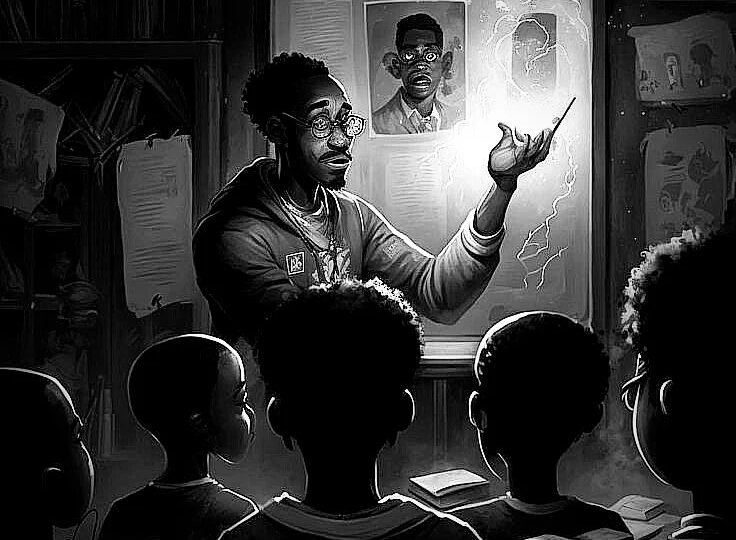Africa is not a country. It is a living, breathing tapestry of 54 nations, thousands of ethnic groups, and millions of people whose ways of life have been shaped by centuries of history, environment, and spiritual belief. To speak of African culture is to open a portal into ancestral wisdom, community ties, unspoken laws, and ceremonies that keep memory alive even when written history fades.
From the deserts of the Sahara to the forests of the Congo, from the swaying plains of East Africa to the bustling coastlines of West Africa, cultural practices in Africa are more than tradition—they are identity. They are how people marry, mourn, heal, greet, dress, celebrate, and worship. They are how Africans hold on to themselves in a world that often demands they let go.
Let’s walk through the diverse and deeply human cultural practices that give Africa its heartbeat.
1. Rites of Passage: Becoming Who You Are
One of the most sacred and widespread practices across African cultures is the rite of passage. These ceremonies mark transitions—birth, puberty, marriage, parenthood, and death. Unlike the Western calendar of birthdays, African rites focus less on the number of years and more on personal and spiritual transformation.
In the Xhosa culture of South Africa, young boys undergo ulwaluko, a rite of passage into manhood that involves circumcision, isolation, and teaching of societal values. It’s not just a physical change; it’s about being welcomed into manhood, responsibility, and community.
Among the Maasai in Kenya and Tanzania, warriors (Morans) are trained in strength, courage, and protection of the tribe. Their transition into elder status is marked by ceremonial dances, blessings, and the shaving of long warrior hair, symbolizing the end of one phase and the beginning of another.
In many parts of Nigeria, girls who reach puberty may go through fattening rooms, especially among Efik people. During this time, young women are pampered, fed well, and taught the responsibilities of womanhood, motherhood, and marriage.
These rites carry deep spiritual and communal meaning—they ensure that life stages are not crossed in silence but are honored through tradition, songs, and teachings passed down by elders.
2. Marriage Ceremonies: The Union of Souls and Families
Marriage in Africa is not simply the coming together of two people—it is the merging of families, clans, and often even villages. Each region has its unique way of celebrating this, but a common thread runs through all: marriage is sacred, and the process is communal.
In Yoruba culture (Nigeria), marriage involves several ceremonies. First, the introduction (Mọ́ ní ń sọ̀rọ̀), where families meet to discuss intentions. Then the engagement, filled with symbolic acts—presentation of gifts like kola nuts, wine, money, and a letter from the groom’s family. The bride may be asked to identify her groom from a group of seated men, adding a moment of humor and intimacy. Traditional Yoruba weddings are a dance of color, music, and ancestry.
The Zulu people in South Africa celebrate with lobola, a bride price traditionally paid in cattle. Today, money may be used, but the symbolic essence remains: showing respect and readiness to care for one’s bride. The celebration involves vigorous dances, attire adorned with beads, and chants that call upon ancestors to bless the union.
For many Africans, a wedding isn’t complete without invoking the spirit world. Elders pour libations, pray, or even slaughter animals to honor ancestors, acknowledging that a marriage is both earthly and spiritual.
3. Birth and Naming Ceremonies: Welcoming Life
In African cultures, a child is more than a new life—it’s the return of an ancestor, a continuation of a lineage, and a bearer of purpose. Birth is not taken for granted, especially in communities where child mortality was once high.
Among the Akan of Ghana, babies are named on the eighth day, depending on the day of the week they were born. Each day has associated traits—so a boy born on a Friday (Kofi) is expected to be adventurous and charismatic.
In Ethiopia, among the Oromo people, the birth of a child is accompanied by ululations, songs, and prayers. Elders may give the child a name based on current events, the family’s aspirations, or signs observed at birth.
Across West Africa, it’s common to consult a spiritualist or diviner to find out what soul has returned, or what destiny the child carries. A child’s name, in this sense, is never random—it’s a message, a prayer, a memory, and a future all in one.
4. Death and Ancestral Worship: Honoring the Departed
Death in African culture is not the end; it is a transition into another realm. The deceased become ancestors, spiritual beings who continue to watch over and influence the living.
Among the Igbo people, funerals are elaborate affairs, especially for elders. The community gathers to feast, dance, mourn, and perform rituals that guide the soul safely into the ancestral realm. In some cases, a second burial is conducted months or years later, reaffirming the deceased’s place among the ancestors.
The Dogon people of Mali perform mask dances (Dama) to escort the soul into the afterlife. Their vibrant, acrobatic ceremonies are a mesmerizing spectacle of color, rhythm, and reverence.
Pouring libation is common across many African cultures—water, palm wine, or gin is poured onto the ground while prayers are said aloud. It is a direct conversation with those who have gone before. It reminds the living: you are never alone.
5. Traditional Healing and Spiritual Practices
Before the arrival of colonial medicine, African communities thrived on traditional healing systems rooted in herbal knowledge and spiritual balance. These practices still hold power today.
Traditional healers—called babalawo, sangoma, or nganga, depending on the region—use divination, herbs, and spiritual insight to heal the body and soul. They are respected as custodians of ancient wisdom.
Illness is not always seen as purely physical; it may be spiritual or social. A broken relationship, an angry ancestor, or a neglected taboo could manifest as sickness. The healer’s role is holistic—diagnosing, treating, and realigning the person with the universe.
In Zimbabwe, spirit mediums connect with ancestral spirits to guide the community. They are often consulted for major decisions, especially in rural areas, where people understand that the material and spiritual worlds are deeply intertwined.
6. Dance, Music, and Oral Traditions
No matter where you go in Africa, music and dance are never far. They are not just for entertainment—they are methods of storytelling, celebration, and healing.
The kora in West Africa, a 21-stringed harp-lute, carries histories of kingdoms and battles. The talking drum mimics speech and was once used to send messages across villages.
Oral traditions, preserved by griots in places like Senegal and Mali, are living libraries. These storytellers memorize genealogies, epics, songs, and wisdom that have never been written down.
In dance, the body becomes language. The Agbekor dance of the Ewe people was originally performed before and after war. The Gwara Gwara, now famous worldwide, originated in South African street culture. In each rhythm, history breathes.
African cultural practices are not stagnant relics of the past—they evolve, adapt, and survive. Despite colonial disruption, globalization, and modernity, many traditions persist. And where they were lost, there is a revival—young Africans are rediscovering the stories, ceremonies, and songs that give meaning to their existence.
To understand Africa, you must listen. Listen not just with your ears, but with your heart. The drumbeat is still there—underneath the noise of the city, inside village ceremonies, within the whispered prayers of elders, and the naming of children.
Culture in Africa is not a thing of museums. It is alive. It breathes in every greeting, every marriage rite, every ancestral libation. And as long as there is memory, as long as there is rhythm, Africa’s spirit will never die.

